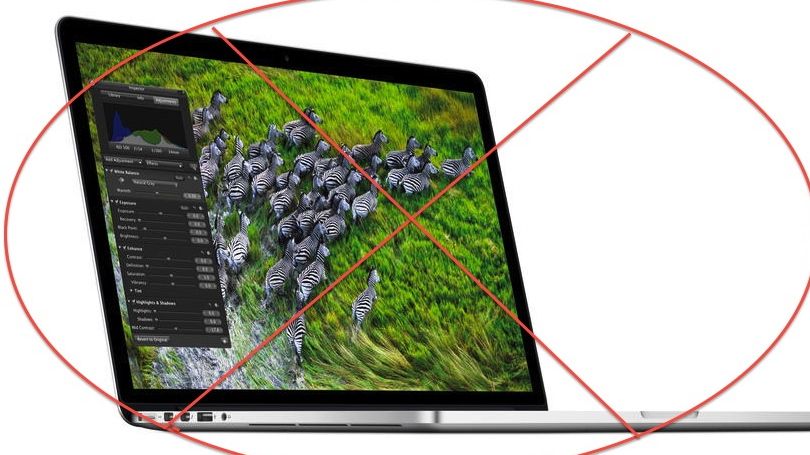More US agencies banning Apple purchases due to environmental concerns
Apple's voluntarily pulled its devices from EPEAT

Apple voluntarily removed a whopping 39 of its devices from the Electronic Product Environment Assessment Tool (EPEAT) registry over the weekend, and U.S. agencies are responding by blocking new purchases of Apple computers, phones and tablets.
The EPEAT list is backed by the U.S. government and identifies and rewards companies and products that meet certain environmentally-friendly specifications.
One of those specifications is that the devices are easy to take apart for recycling purposes, which Apple's devices increasingly are not.
The new Apple MacBook Pro with retina display, for example, uses ample amounts of glue to hold its insides together, making it all the more difficult to disassemble.
This reportedly makes the laptop ineligible for EPEAT's registry, a point that became moot when Apple chose to pull its devices from the green list.
"They said their design direction was no longer consistent with the EPEAT requirements," EPEAT CEO Robert Frisbee said at the time.
An Apple a day keeps the municipality away
Because of EPEAT's close ties with the U.S. government, more and more U.S. agencies will be forced by their own policies to block purchases of any additional Apple products.
Get daily insight, inspiration and deals in your inbox
Sign up for breaking news, reviews, opinion, top tech deals, and more.
San Francisco is apparently leading the charge, with the city's Department of Environment sending letters to all 50 city agencies informing them that city funds can no longer be used to purchase Apple products.
Currently, only 500 or 700 (1 percent to 2 percent) of San Francisco's government computers are Macs.
But the ramifications of Apple's decision will resonate much further than the Bay Area, as an ever-increasing number of environmentally-conscious municipalities, schools and corporations decided to purchase only EPEAT-friendly devices.
Even U.S. federal agencies require by policy that EPEAT-listed devices are preferred over those not on EPEAT.
TechRadar reached out to the San Francisco Department of Environment and Department of Technology for comment, but they've yet to respond.
Has Apple fallen far from the EPEAT tree?
One analyst, speaking to the CIO Journal, said that the small number of agencies that actually require 100 percent EPEAT compliance will make this an insignificant issue for Apple.
And Apple, which helped create the EPEAT guidelines in 2006, still offers annual environmental impact reports and in-house recycling programs, so they haven't abandoned green practices altogether.
It's more likely that Apple simply wants to handle all repairs and recycling itself while making it difficult for consumers and techies to service their own devices without Apple's help.
Presumably the EPEAT-related sales losses will be worth the extra dependence consumers will have on Apple for repairs and service.
Via ReadWriteWeb, CIO Journal
Michael Rougeau is a former freelance news writer for TechRadar. Studying at Goldsmiths, University of London, and Northeastern University, Michael has bylines at Kotaku, 1UP, G4, Complex Magazine, Digital Trends, GamesRadar, GameSpot, IFC, Animal New York, @Gamer, Inside the Magic, Comic Book Resources, Zap2It, TabTimes, GameZone, Cheat Code Central, Gameshark, Gameranx, The Industry, Debonair Mag, Kombo, and others.
Micheal also spent time as the Games Editor for Playboy.com, and was the managing editor at GameSpot before becoming an Animal Care Manager for Wags and Walks.
